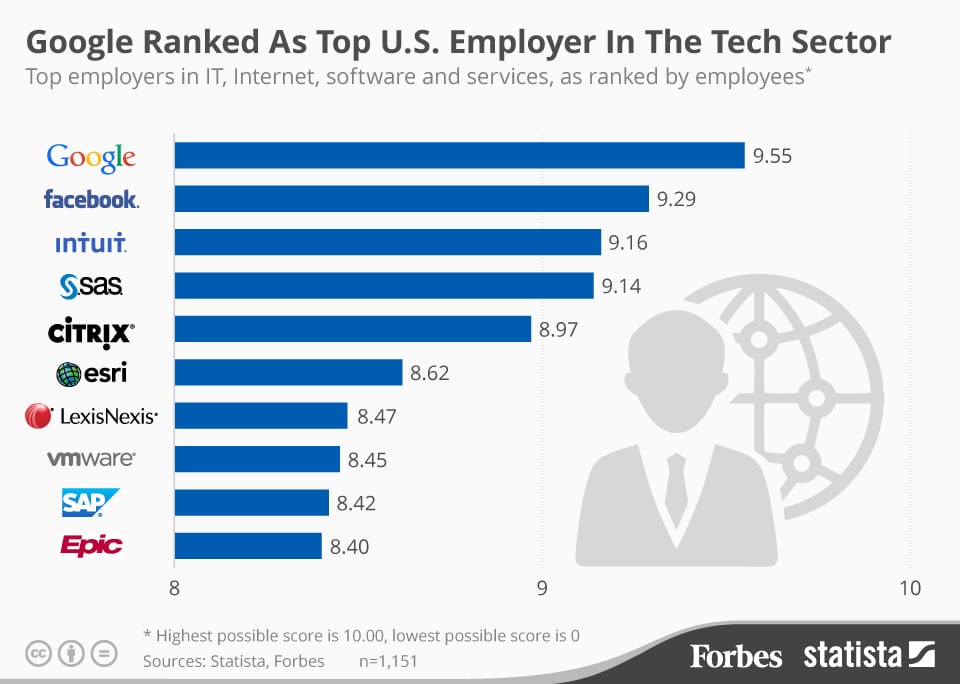The world is increasingly digital, and the technology industry is at the heart of this transformation. From smartphones to artificial intelligence, technology is shaping how we live, work, and interact with the world around us. This rapid evolution has created a massive demand for skilled professionals, making technology a highly sought-after career path. But is it the right choice for you?
This article will delve into the multifaceted world of technology careers, exploring the benefits, challenges, and considerations for those contemplating a career in this dynamic field. We’ll examine the diverse range of roles available, the skills and education required, and the top employers in the industry. By providing a comprehensive overview, we aim to equip you with the information needed to make an informed decision about whether a tech career aligns with your aspirations and goals.
The Allure of a Tech Career: A World of Possibilities
The technology industry is a vibrant and ever-evolving landscape, offering a multitude of opportunities for individuals with diverse skills and interests. Here’s a closer look at the key advantages of pursuing a career in tech:
1. A Thriving and Growing Industry:
The tech sector is experiencing unprecedented growth, with the US Bureau of Labor Statistics (BLS) predicting an employment growth rate well above the national average between 2022 and 2032. This translates to a plethora of job openings across various specializations, ensuring a high demand for skilled professionals. As new technologies emerge and companies expand, the industry continues to create exciting opportunities for career advancement and innovation.
2. Flexibility and Work-Life Balance:
Tech companies are renowned for their flexible work cultures, often embracing remote work arrangements and prioritizing work-life balance. The rise of cloud computing and collaboration tools has enabled employees to work from anywhere with an internet connection, empowering them to manage their schedules and responsibilities with greater autonomy. This flexibility is particularly appealing to individuals seeking a better balance between their professional and personal lives.
3. High Salaries and Competitive Compensation:
The technology industry is known for offering competitive salaries and benefits packages, particularly for individuals with specialized skills and experience. The median annual salary for IT and computer professionals is $100,530, with the top 10% earning over $232,010 annually. This attractive compensation structure is a major draw for many individuals seeking financial stability and career growth.
4. Endless Career Path Options:
The technology industry is not a one-size-fits-all field. It encompasses a vast array of roles and specializations, catering to diverse interests and skill sets. Whether you’re passionate about coding, data analysis, design, marketing, or project management, there’s likely a place for you in the tech world. This diversity allows individuals to explore different avenues, find their niche, and build a fulfilling career based on their strengths and aspirations.
5. Meaningful Work and Making a Difference:
Technology has the power to solve complex problems, improve lives, and create a more sustainable future. From developing healthcare applications to creating accessibility tools, tech professionals are at the forefront of innovation, contributing to positive change and making a tangible impact on society. The opportunity to work on projects that align with personal values and contribute to a better world is a powerful motivator for many tech professionals.
Navigating the Tech Landscape: Understanding the Different Roles
The technology industry is a complex ecosystem, encompassing a wide range of roles and specializations. Here’s a breakdown of some of the most common tech careers, highlighting their key responsibilities and skill requirements:
1. Software Development:
Software developers are the architects of the digital world, creating the software applications, programs, and mobile apps that we use every day. They use programming languages to design, build, and test software, ensuring its functionality and user-friendliness.
- Roles: Software Developer, Web Developer, Mobile App Developer, Game Developer, Backend Developer, Frontend Developer
- Skills: Programming languages (Java, Python, C++, JavaScript), software development methodologies, problem-solving, analytical thinking, attention to detail.
2. Data Science:
Data scientists are the detectives of the digital age, analyzing vast amounts of data to uncover patterns, insights, and trends. They use statistical models, machine learning algorithms, and data visualization tools to extract meaningful information and solve complex problems.
- Roles: Data Scientist, Data Analyst, Data Engineer, Data Architect, Machine Learning Engineer
- Skills: Statistical analysis, machine learning, data mining, data visualization, programming languages (Python, R), data warehousing, cloud computing.
3. Cybersecurity:
Cybersecurity professionals are the guardians of the digital realm, protecting organizations and individuals from cyber threats and data breaches. They implement security measures, monitor networks, respond to incidents, and develop strategies to mitigate risks.
- Roles: Cybersecurity Analyst, Security Engineer, Penetration Tester, Ethical Hacker, Information Security Manager
- Skills: Network security, cryptography, ethical hacking, incident response, security auditing, compliance regulations.
4. IT Support and Operations:
IT support professionals are the first line of defense for technology users, troubleshooting problems, providing technical assistance, and ensuring the smooth operation of computer systems and networks.
- Roles: IT Support Technician, Help Desk Analyst, Network Engineer, System Administrator, Cloud Engineer
- Skills: Troubleshooting, technical support, network administration, system maintenance, hardware and software knowledge, customer service.
5. User Experience (UX) and User Interface (UI) Design:
UX/UI designers are the architects of user-friendly digital experiences, focusing on creating intuitive and visually appealing interfaces that enhance user satisfaction and engagement.
- Roles: UX Designer, UI Designer, UX Researcher, Interaction Designer, Visual Designer
- Skills: User research, design thinking, wireframing, prototyping, visual design, user interface principles, accessibility.
6. Project Management:
Project managers are the orchestrators of complex technology projects, leading teams, managing budgets, and ensuring projects are delivered on time and within scope.
- Roles: Project Manager, Scrum Master, Agile Coach, Product Owner, Program Manager
- Skills: Project management methodologies (Agile, Waterfall), communication, leadership, problem-solving, risk management, team management.
7. Marketing and Sales:
Tech companies also need skilled marketers and salespeople to promote their products and services, build brand awareness, and generate revenue.
- Roles: Marketing Manager, Digital Marketing Specialist, Sales Representative, Account Executive, Content Marketing Manager
- Skills: Marketing strategy, digital marketing, content creation, social media marketing, sales techniques, customer relationship management.
Building Your Tech Career: The Essential Skills and Education
While the specific requirements for each tech role vary, there are some fundamental skills and educational qualifications that are highly valued across the industry:
1. Technical Skills:
- Programming Languages: Proficiency in programming languages such as Python, Java, JavaScript, C++, and C# is essential for many tech roles, particularly those involving software development, data science, and cybersecurity.
- Data Analysis and Visualization: Skills in data analysis, statistical modeling, and data visualization tools like Tableau, Power BI, and R are highly sought after in data-driven fields.
- Networking and Security: Understanding network protocols, security principles, and cybersecurity tools is crucial for roles in IT support, cybersecurity, and network engineering.
- Cloud Computing: Knowledge of cloud platforms like AWS, Azure, and Google Cloud is increasingly important, as companies shift towards cloud-based solutions.
2. Soft Skills:
- Communication: Effective communication skills are essential for collaborating with colleagues, clients, and stakeholders.
- Problem-Solving: Tech professionals are constantly faced with challenges, requiring strong analytical and problem-solving abilities.
- Teamwork and Collaboration: Working effectively in teams is crucial for success in many tech roles, as projects often involve collaboration and shared responsibilities.
- Adaptability and Continuous Learning: The technology industry is constantly evolving, requiring individuals to be adaptable and willing to learn new skills throughout their careers.
3. Education and Training:
- Bachelor’s Degree: A bachelor’s degree in computer science, software engineering, information technology, or a related field is often the minimum requirement for entry-level tech roles.
- Master’s Degree: A master’s degree can provide specialized knowledge and advanced skills, making you more competitive for senior-level positions.
- Certifications: Industry certifications can demonstrate specific skills and expertise, enhancing your credibility and marketability.
- Online Courses and Bootcamps: Online courses and bootcamps offer flexible and affordable ways to acquire new skills and knowledge in specific areas of technology.
Top Employers in the Tech Industry:

Source: Forbes
The technology industry is home to some of the world’s most innovative and influential companies, offering a wide range of career opportunities and growth potential. Here are some of the top employers in the tech sector:
- Google: A global leader in search, advertising, cloud computing, and artificial intelligence.
- Microsoft: A leading software developer and provider of cloud computing services.
- Amazon: A global e-commerce giant and leader in cloud computing, digital streaming, and artificial intelligence.
- Apple: A leading manufacturer of consumer electronics and software.
- Facebook (Meta): A social media giant and leader in virtual reality and augmented reality.
- IBM: A global technology and consulting company specializing in enterprise solutions.
- Salesforce: A leading provider of cloud-based software for customer relationship management.
- Netflix: A global streaming service provider.
- Tesla: A leading electric vehicle manufacturer and technology company.
- SpaceX: A private space exploration company.
The Challenges of a Tech Career: The Flip Side of Innovation
While the technology industry offers many advantages, it’s important to acknowledge the challenges that come with working in this fast-paced and demanding field:
1. Fast-Paced and High-Pressure Environment:
The tech industry is known for its rapid pace of innovation and constant pressure to deliver results. This can be both exciting and overwhelming, as professionals are expected to keep up with the latest trends and technologies, meet deadlines, and adapt to changing priorities. This fast-paced environment can lead to burnout and stress if not properly managed.
2. Constant Learning and Skill Development:
The technology landscape is constantly evolving, requiring professionals to continuously learn new skills and adapt to emerging technologies. This can be a challenge for individuals who prefer a more stable and predictable work environment. The need for constant learning can also be time-consuming and require significant effort.
3. Competition and Job Security:
The tech industry is highly competitive, with a constant influx of talented professionals. This can make it challenging to secure a job and advance in your career. Job security can also be a concern, as companies may restructure or downsize in response to market fluctuations or technological advancements.
4. Diversity and Inclusion Challenges:
Despite the industry’s growth, the tech sector still faces challenges in terms of diversity and inclusion. The lack of representation of women, minorities, and people with disabilities in leadership positions and technical roles is a significant issue that needs to be addressed.
5. Work-Life Balance Concerns:
While many tech companies promote flexible work arrangements, the fast-paced nature of the industry can still lead to work-life balance challenges. Long hours, demanding deadlines, and the constant pressure to stay ahead of the curve can make it difficult to maintain a healthy balance between work and personal life.
Making the Right Choice: Evaluating Your Fit for a Tech Career
Choosing a career path is a significant decision, and it’s crucial to carefully consider whether a tech career aligns with your interests, skills, and values. Here are some questions to ask yourself:
- Are you passionate about technology and its potential to solve problems and improve lives?
- Do you enjoy learning new things and adapting to change?
- Are you comfortable working in a fast-paced and demanding environment?
- Do you have strong problem-solving and analytical skills?
- Are you comfortable with technology and have a basic understanding of programming concepts?
- Do you enjoy working collaboratively in teams?
- Are you willing to invest time and effort in continuous learning and skill development?
If you answered yes to most of these questions, then a tech career might be a good fit for you. However, if you prefer a more stable and predictable work environment, or if you’re not comfortable with technology, then other career paths might be more suitable.
Conclusion: Embracing the Future of Work
The technology industry is a dynamic and evolving field that offers a wide range of opportunities for individuals with diverse skills and interests. It’s a world of innovation, creativity, and the potential to make a real difference in the world. However, it’s also a fast-paced and demanding environment that requires adaptability, continuous learning, and a willingness to embrace change.
By carefully considering the benefits and challenges, and by evaluating your own skills, interests, and aspirations, you can make an informed decision about whether a tech career is the right path for you. If you’re passionate about technology and are willing to invest in your growth, then the technology industry can be a rewarding and fulfilling career choice.
Melsoft Academy offers IT courses to help you build your skills and enhance your career prospects. Explore courses in Cybersecurity, UI/UX, and Software Engineering to gain the knowledge and qualifications you need to succeed in the tech industry.


